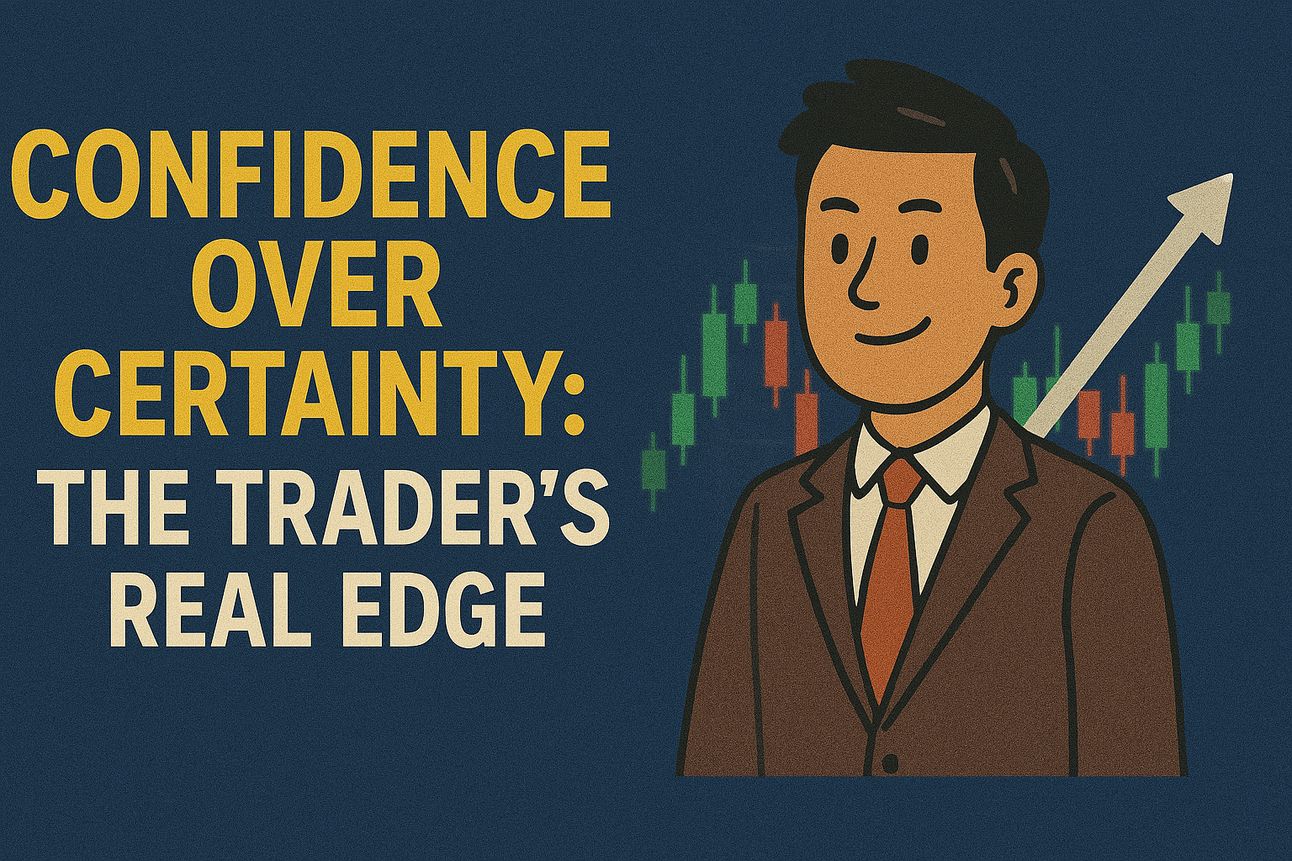Key Points:
Most traders chase certainty, profitable traders build confidence instead.
Seeking perfect signals leads to hesitation, overtrading, and burnout.
Confidence grows through risk control, journaling, and routine—not prediction.
The Certainty Trap That Cripples Traders
Traders often enter the markets with one secret hope: to find a “sure thing.” A perfect system. A strategy that guarantees profits. But that mindset, chasing certainty, is the root of inconsistency and emotional decision-making.
Why?
Because certainty doesn’t exist in trading. Markets are complex, constantly evolving, and driven by countless unseen variables. Trying to predict them with 100% accuracy is like trying to predict the wind.
And yet, every day, traders hesitate on clean setups. They search for one more confirmation. They add five indicators to a chart. They skip a trade that checks all their boxes… because it “feels wrong.”
This is the certainty trap.
Confidence vs. Certainty: What’s the Difference?
Here’s the real distinction:
Certainty says: “I know this trade will win.”
Confidence says: “Even if this trade loses, I know I’ll manage it well.”
Dr. Brett Steenbarger, one of the leading performance coaches for traders, puts it like this:
“Confidence is the ability to act in the face of uncertainty—not the absence of uncertainty itself.”
In other words: successful traders don’t need to know what the market will do—they need to trust what they will do.
Why Traders Who Seek Certainty Fail
The more you try to eliminate uncertainty, the more pressure you put on your trades. You create internal rules like:
“I need to win this trade.”
“If I’m wrong, I must fix it quickly.”
“I’ll only take setups that feel 100% obvious.”
These rules eventually lead to:
Overtrading (chasing after “perfect” setups)
Analysis paralysis
Fear of pulling the trigger
Revenge trading after a loss
System hopping every time you lose
Instead of building consistency, you're building frustration.
What the Research Says
This isn’t just psychology fluff—it’s backed by data.
In a landmark behavioral finance study from Open University (UK), professional traders were observed during live market conditions. The finding?
“The most successful traders weren’t those who had superior forecasting skill—but those who managed uncertainty through routine, discipline, and process.”
— Fenton-O'Creevy et al., 2011
These traders didn’t panic during losses. Instead, they relied on structured habits like journaling, reviewing their process, and sticking to tested strategies, often outperforming those who relied on intuition alone.
Source: Behavioral Study on Traders, Researchgate
How to Build Trading Confidence (Even When You're Losing)
1. Define Your Risk Before You Enter Never enter a trade unsure of where you’ll exit if it goes wrong. You must know your stop and position size before you hit buy or sell.
2. Journal Every Trade Track emotions, setup conditions, win/loss, and what you did right/wrong. Over time, this becomes a mirror—and a compass.
3. Separate Process From Outcome A losing trade doesn't mean you made a mistake. Ask: “Did I follow my rules?” Not: “Did I win?”
4. Focus on Execution Quality Rate your execution from 1–10. High-quality execution on a loss is still progress.
5. Accept Variance Losing streaks are normal. So are winning streaks. Confidence comes from knowing your edge plays out over time.
How to Know If You’re Chasing Certainty
Ask yourself:
Do I skip trades that match my plan because I “don’t feel right”?
Am I always looking for a better system, strategy, or indicator?
Do I feel fear or anxiety when about to click “buy” or “sell”?
If yes, you may be operating from a certainty mindset. Shift it by:
Focusing on probability, not prediction.
Trusting your rules, not your emotions.
Accepting that losses are part of winning long-term.
Quick Mindset Reframe: From Prediction to Preparation
Bad traders ask: “What will the market do next?”
Confident traders ask: “What will I do if the market does A or B?”
Confidence is rooted in preparation. Certainty is rooted in hope.
Final Thoughts: Trade With Confidence, Not Illusions
The markets don’t reward perfection—they reward discipline.
• Confidence means acting consistently.
• Confidence means sticking to your plan—win or lose.
• Confidence means knowing that uncertainty is part of the game, not a problem to be solved.
If you want to become a long-term profitable trader, stop chasing certainty, and start building confidence.
That’s the real edge.




